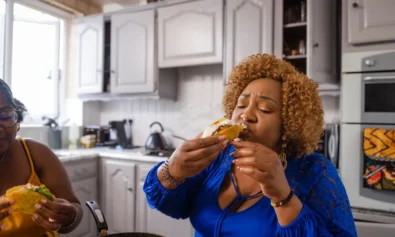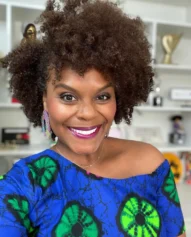The biggest challenge in getting African-Americans to sign up for the bone marrow registry is getting rid of the myths surrounding donation.
“People really think it’s painful; it’s not,” said Nadya Dutchen, national account executive for Be The Match, a nonprofit organization that matches donors with people in need.
While donations from black people equal their representation of the population in the U.S., about 13 percent, Dutchen said, many more registrants are needed.
“We have such genetic diversity in our culture with West Indians, Afro-Caribbeans, Native Americans in our communities. We are the oldest set of people on earth and our DNA is more complicated; it’s more diverse. It’s not enough to be on par. We need to be over-represented in the registry.”
The likelihood that someone will find a bone-marrow match within her immediate family is rare.
Only about 30 percent of patients find a match in their families. A notable success story is ABC News personality Robin Roberts, who found a match with her sister to help her battle a rare form of blood cancer.
It only takes a mouth swab to get on the registry and if you are called upon to donate marrow, it is not an invasive process, Dutchen said.
“The No. 1 myth is that it is very painful. No. No. No. No,” Dutchen said.
She said that if people needed to take medication through an IV or to receive a blood transfusion in order to live, they probably wouldn’t hesitate. The process of donating platelets or blood plasma, the most common form of donation, is no more invasive than a four- to six-hour hospital visit. Donors remain awake, under a local anesthetic, and go home the same day.
In the rare cases were marrow is drawn from the hip or back, donors are put under anesthesia, but the procedure takes about 30 minutes and donors are released the same day. It’s only used about 25 percent of the time and usually when children are the intended recipients. Marrow drawn from the hip is the best cell source for very young patients.
“There’s discomfort, but it’s nothing compared to the pain the patients are going through,” Dutchen said.
Bone-marrow transplants can cure sickle cell anemia and are key to healthier outcomes for certain kinds of leukemia and lymphoma.
In July, during African-American Bone Marrow Awareness Month, Be the Match is hosting donor registry drives and encouraging black folks to visit its website and sign up for the registry, make a monetary donation, or sign up to host a drive function.
Sequestration, which resulted in about a $3 million cut in federal funds, has reduced the organization’s ability to stage events and travel more of the country to raise money and register people as potential donors.
“There is a cost to join the registry, but we don’t ask the public for it,” Dutchen said.
So as funds have dried up, Be The Match has had to be more targeted in the groups it aims to attract, particularly younger donors.
Dutchen said students at historically black colleges and universities (HBCUs) have really stepped up and registered 4,500 potential donors this year, which helped pick up some of the slack.
Young donors are preferred. Anyone, aged 18-61, is eligible to register, but donors 18-44 are preferred because “they give patients better outcomes,” Dutchen said. “Survivorship is higher, and the incidences of side effects are lower.”
Sheldon Mba has helped to organize a number of bone-marrow registry drives at several HBCUs, including at North Carolina Central University, where he is a student.
Mba has a lot riding on the success of these events. The 19-year-old is on the transplant waiting list, looking for the match who can help him overcome the aplastic anemia he was diagnosed with in February 2012.
“No one in my immediate family is a match. I have to get on the registry and that’s just difficult,” said Mba, who was diagnosed about a month after losing his father to prostate cancer.
At first, “I put off going to the doctor,” Mba said. “I was battling this for some time before I got treatment. I was thinking, ‘I’m just tired’ or ‘I just need to change my diet.’”
The turning point came when he collapsed while preparing to attend a school event.
Now, however, Mba is on a medication regimen and is managing his health well while he waits for a match.
“When you see me, I look perfectly fine,” Mba said, which sometimes makes it difficult to convince people there is a need to sign up for the registry to help people like him.
The biggest excuse he has to overcome, Mba said, is the fear of needles by people who believe the myth that the donation procedure is painful.
But he has an answer ready.
“You say you’re scared of needles, but you have tattoos and piercings. Really?”
Jackie Jones, a journalist and journalism educator, is director of the career transformation firm Jones Coaching LLC and author of “Taking Care of the Business of You: 7 Days to Getting Your Career on Track.”


